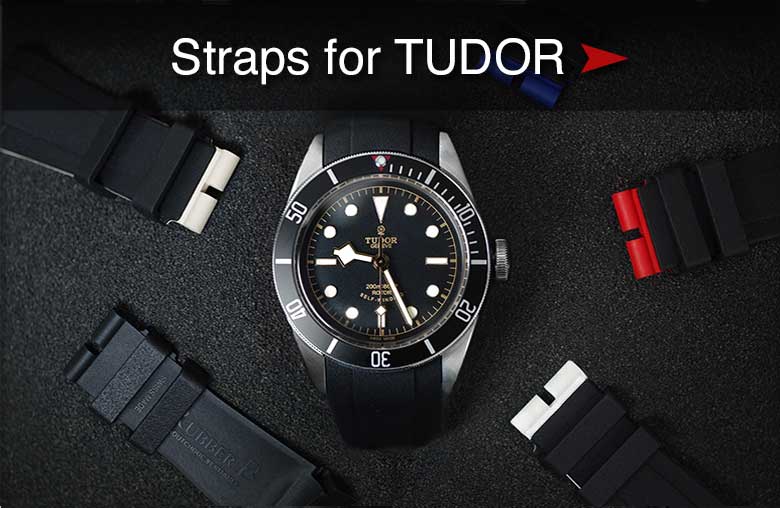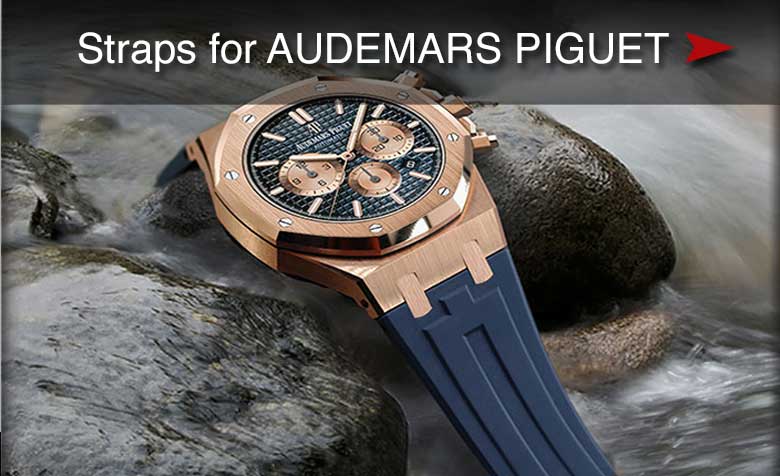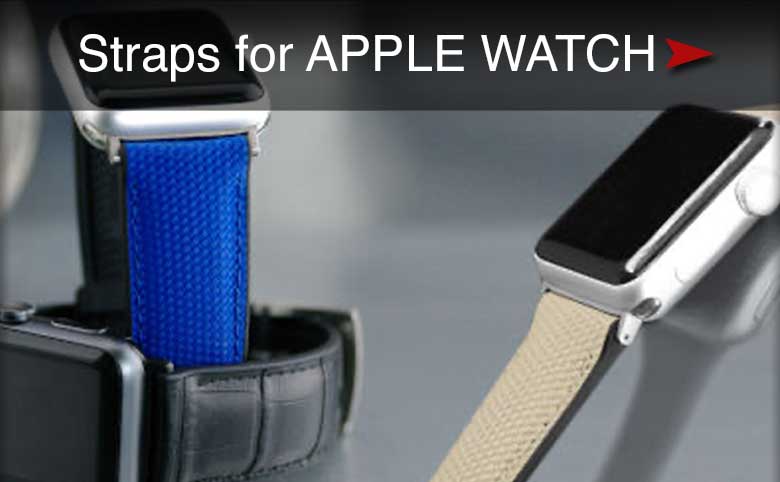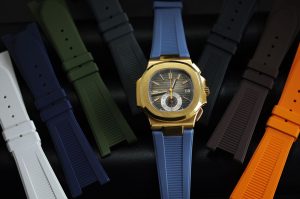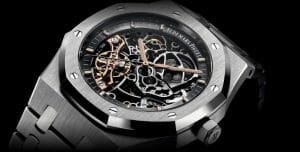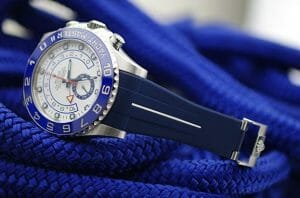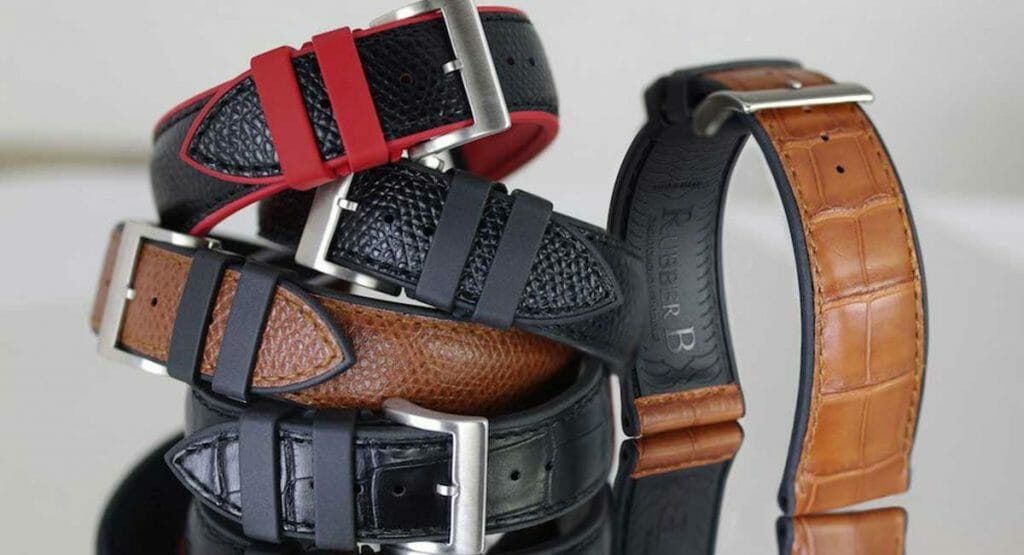
As one of the leading experts in the creation of custom rubber watch straps, Rubber B is proud to continue to use its blog as an educational platform to educate consumers about important developments and other items of note in the world of horology.
Oftentimes, this blog takes a “micro” approach to its content, meaning that we will focus on a specific watch or a specific company and examine it in more detail. However, we will occasionally deviate from this approach and look at something in a broader and “big picture” type of context, and that is what we will be focusing on with today’s entry.
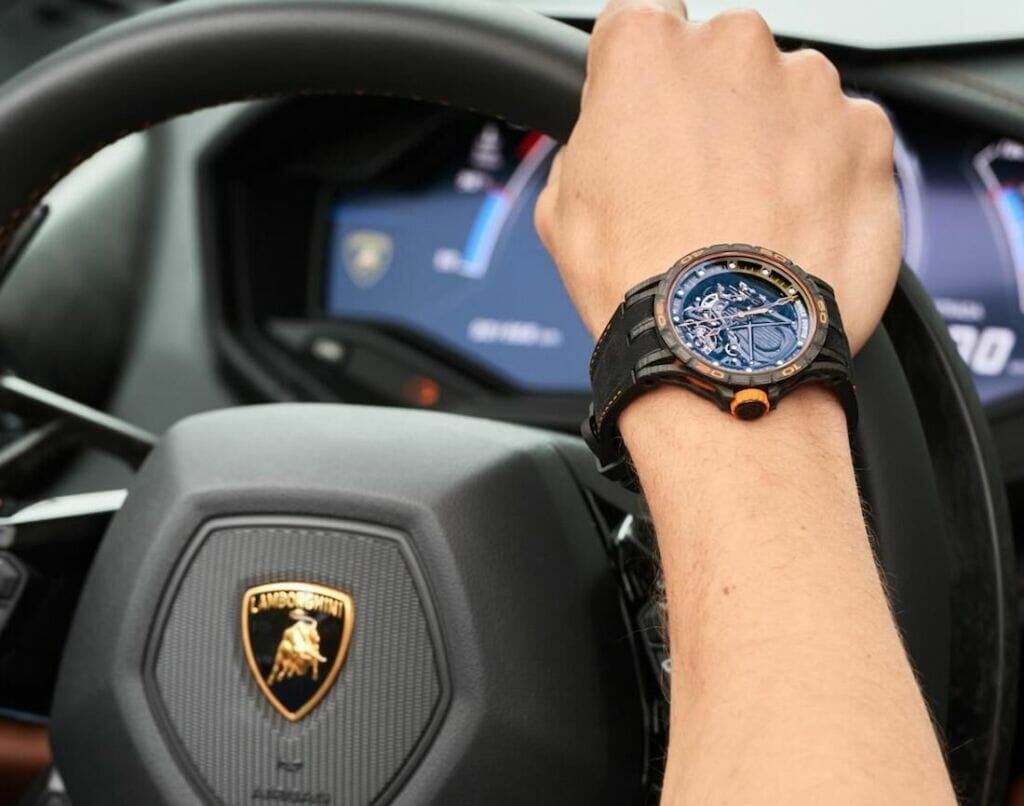
We are going to be taking a closer look at the history of the modern wristwatch – specifically focusing on answering a couple of important questions:
- When was the wristwatch first invented?
- What is a chronograph wristwatch?
- Who invented the wristwatch?
- How long does a wristwatch usually last?
When Was the Wristwatch First Invented?
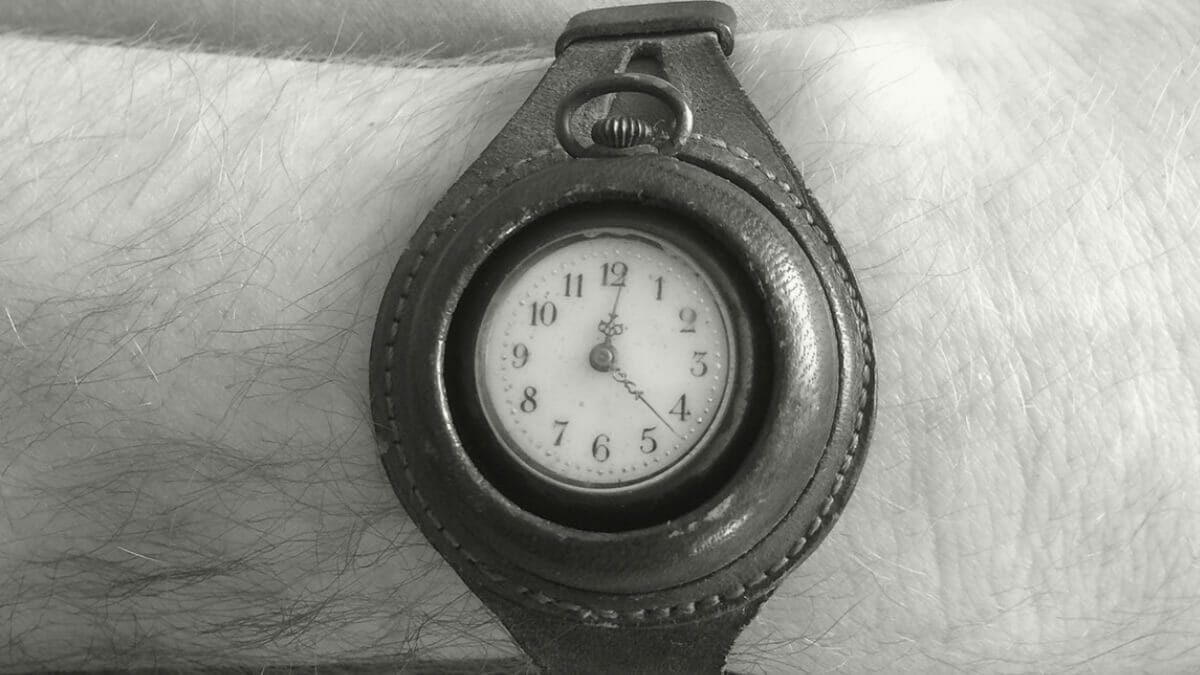
While pocket watches had been around for several decades before this, the first official wristwatch was invented in 1810 and presented to the queen of Naples. Several decades later, in 1868, Countess Koscowicz of Hungary would have a bracelet made by Patek Phillipe, one of the leading Swiss watch manufacturers.
Because of this, for many years, wristwatches were considered to be more “feminine” and were treated as jewelry instead of a utilitarian tool. This idea would persist until 1914, at the outset of World War I. During this time, men started to wear pocket watches because it would allow them to keep time more precisely during military operations. As a result, men started wearing wristwatches more commonly after the conclusion of the war, resulting in men’s wristwatches being produced for a civilian market.
What is a Chronograph Wristwatch?
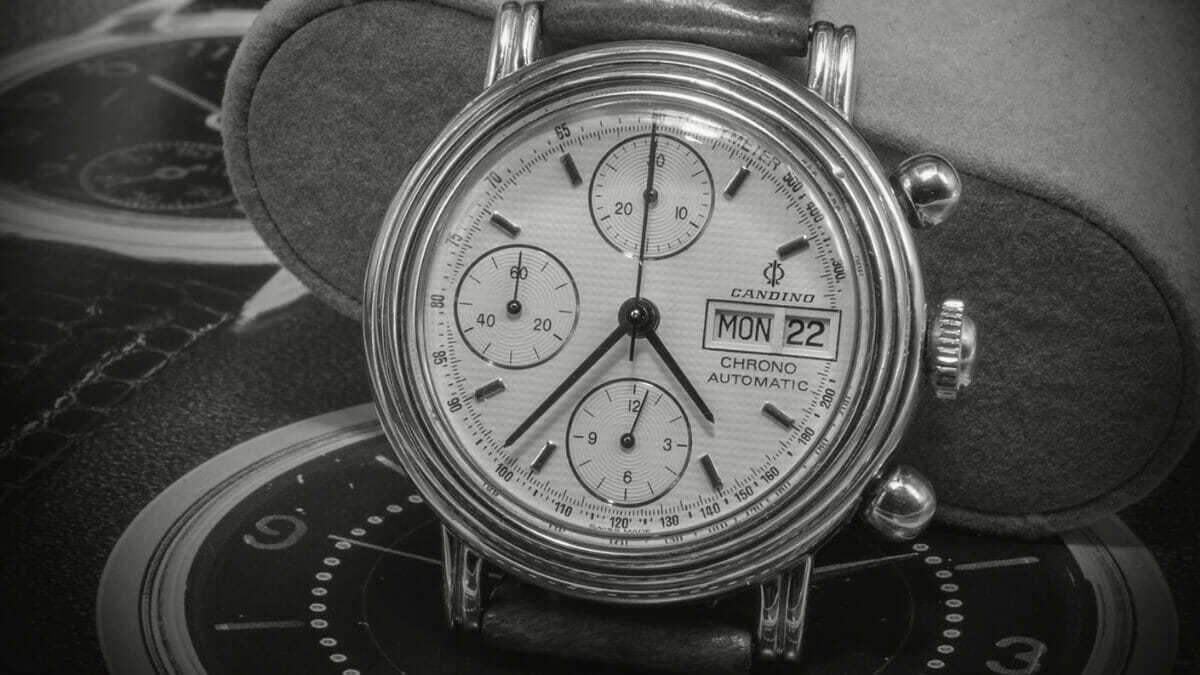
One of the other reasons that wristwatches began to become more common during this time was that people in professional industries, such as sailors and pilots, needed a “portable chronograph” to assist them in keeping precise track of time because their work was time-sensitive.
Chronographs are timepieces that keep extremely precise time and can be started and stopped, in much the same fashion as a stopwatch. Modern chronographs have rotatable bezels that are often used as tachymeters, which means that the wearer can quickly calculate distance or speed if need be.
Who Invented The First Wristwatch?
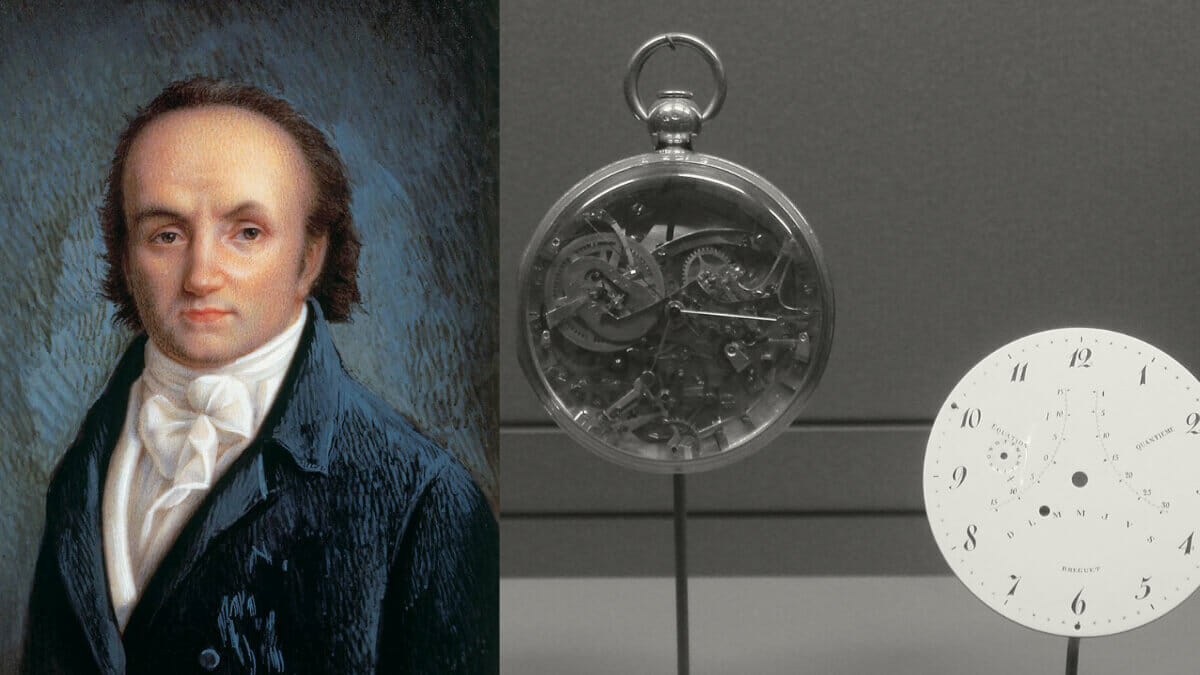
The first wristwatch was invented by Abraham-Louis Breguet, a Prussian national (modern-day Germany) who was considered to be the leading watchmaker of his time. He was an early archetype of what we would consider to be the “celebrity jeweler,” and he counted several prominent public figures in Europe, up to and including nobility, amongst his clients.
However, it should be noted that there are records of “arm watches” being worn by people as early as the 1570’s, and it is likely that these were primitive versions of what we know to be the modern wristwatch. However, there does not seem to be much available in the way of pictures of these “arm watches,” so it is hard to determine how closely these timepieces resembled the modern wristwatch.
How Long Does a Wristwatch Usually Last?
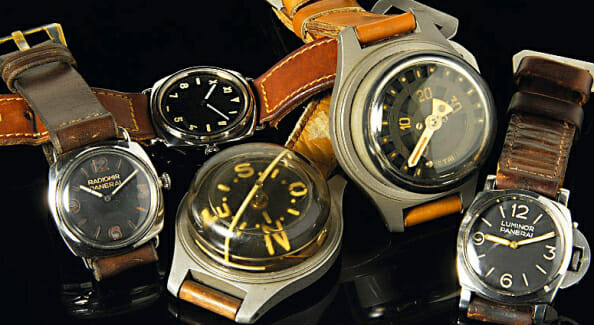
This is a somewhat complicated question to answer, as it differs depending on what criteria you are using to answer it. Officially, the answer to this question that will be given is “3-5 years.” However, this seems to be more of a statement that watchmakers will issue to prevent themselves from legal entanglements in the future.
The more practical answer is “for several generations,” but there is an extremely important caveat attached to that statement – you must regularly have the watch serviced by a professional and care for it continuously. As with most other things in life, the watch will last as long as you make an effort to care for it. This means that the lifespan of your timepiece is largely within your control.
However, this doesn’t apply only to the watch itself – it also applies to the bracelet as well. Custom rubber watch straps, such as the ones produced by Rubber B, last longer than animal-based straps, such as those made from leather or alligator skin. This is because rubber can be manufactured in such a way that it can be more resistant to the elements or traditional wear and tear than animal products.
Are You Looking for a Custom Rubber Watch Strap For Your Luxury Timepiece? Visit Rubber B Today
If you are looking for a custom rubber watch band for your luxury wristwatch, Rubber B has a plethora of different styles and color patterns to choose from. To peruse our complete product catalog, simply visit our website today.\
Follow Us on Instagram



